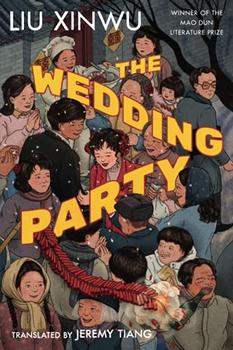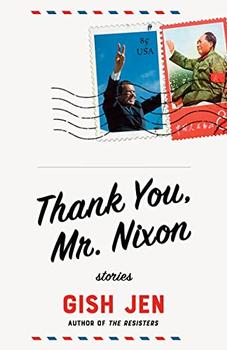Summary | Excerpt | Reviews | Beyond the book | Read-Alikes | Genres & Themes | Author Bio

In this sprawling, award-winning novel, celebrated Chinese writer Liu Xinwu cordially invites you to an epic, riotous, and moving neighborhood feast.
On a December morning in 1982, the courtyard of a Beijing siheyuan―a lively quadrangle of homes―begins to stir. Auntie Xue's son Jiyue is getting married today, and she is determined to make the day a triumph. Despite Jiyue's woeful ignorance in matters of the heart―and the body. Despite a chef in training tasked with the onerous responsibility of preparing the banquet. With a cross-generational multitude of guests, from anxious family members to a fretful bridal party―not to mention exasperating friends, interfering neighbors, and wedding crashers―what will the day ahead bring?
Set at a pivotal point after the turmoil of the Chinese Cultural Revolution, Liu Xinwu's tale weaves together a rich tapestry of characters, intertwined lives, and stories within stories. The Wedding Party is a touching, hilarious portrait of life in this singular city, all packed into a Beijing courtyard on a single day that manages to be both perfectly normal and utterly extraordinary at the same time.
The Wedding Party is a discordant instrument, lacking in cohesion and demonstrating the chaos of ordinary life. In this way, it is a warmingly relatable novel. Weddings are stressful, no matter who you are. Unexpected problems are likely to occur, uninvited guests may cause trouble and emotions will run high. Liu does something truly remarkable in juggling the cast of characters: Beyond fleshing them all out into flawed and lovable people, he also uses them to show how the Cultural Revolution and its aftermath were experienced by ordinary residents of China's capital city...continued
Full Review
 (616 words)
(616 words)
(Reviewed by Will Heath).
The world of 1980s China depicted in Liu Xinwu's The Wedding Party was a unique and transitory one. Starting after the end of Mao's Cultural Revolution and leading to the infamous Tiananmen Square Massacre of 1989, this was mostly a decade of quiet change.
After the death of Communist leader Mao Zedong in 1976, Mao's successor Hua Guofeng was at risk of being overthrown by the Gang of Four — a group led by Mao's widow, Jiang Qing. Shortly after Mao's death, Hua had the Gang of Four arrested. However, Hua gradually lost the faith of the people, leaving room for Deng Xiaoping, a political rival of Mao's, to move in.
Deng is known as the "Architect of Modern China." This reputation for change and growth began with him restoring ...

If you liked The Wedding Party, try these:

by Anne Tyler
Published 2025
A new Anne Tyler novel destined to be an instant classic: a socially awkward mother of the bride navigates the days before and after her daughter's wedding.

by Gish Jen
Published 2022
The acclaimed, award-winning author of The Resisters takes measure of the fifty years since the opening of China and its unexpected effects on the lives of ordinary people. It is a unique book that only Jen could write - a story collection accruing the power of a novel as it proceeds - a work that Cynthia Ozick has called "an art beyond art. It is ...
The only real blind person at Christmas-time is he who has not Christmas in his heart.
Click Here to find out who said this, as well as discovering other famous literary quotes!